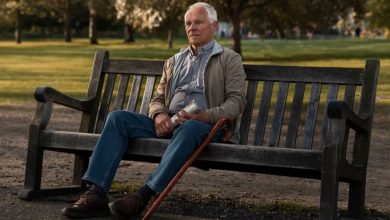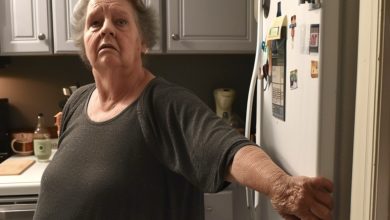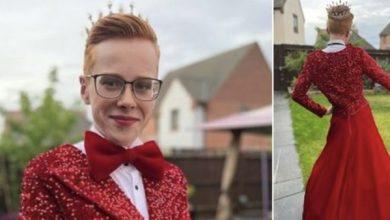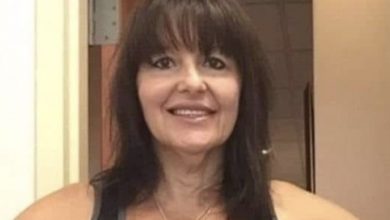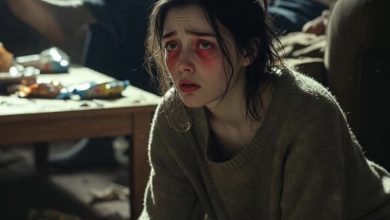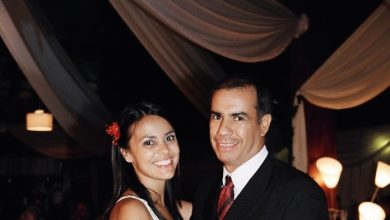They Called Me Dramatic Until I Delivered My Sister’s Baby And The Truth Finally Came Out
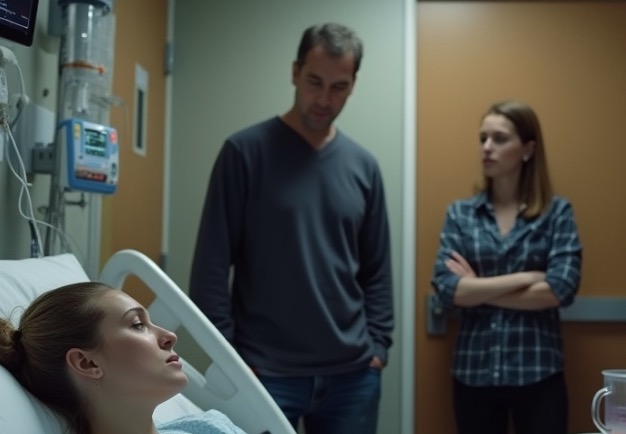
My parents always said my sister’s pregnancy was nothing more than stress. When she went into labor, they told me I was being dramatic. So I helped her deliver the baby—completely alone. But when they finally saw the newborn, and Abigail spoke the truth out loud, our entire world fell apart.
My sister Abigail was sixteen when she became pregnant. Nobody in our family wanted to believe it—not because she was dishonest, but because our parents refused to accept the possibility that their “perfect daughter” could make a mistake. For nine long months, they convinced themselves she was only putting on weight from stress eating. Whenever her belly grew, they said it was because she was “bloated.”
As time went on, her situation became impossible to hide. Our parents made excuses for everything. They told family members Abigail was going through “a hormonal imbalance.” They lied to neighbors, saying she was struggling with “health issues” and needed rest. When people started whispering, they pulled her out of school entirely and switched her to homeschooling, so no one outside could see how big she had become.
And then one afternoon in late spring, while our parents were both at work, it happened. Abigail went into labor. I was fourteen. I had never even seen a real baby being born—not even a video—and suddenly, I was the only one there to help her.
That morning, Abigail had complained that her back hurt badly. She was pale and sweating, lying curled up on the living room couch. Every few minutes, she’d wince and grab her stomach. “It’s probably just cramps,” she whispered. “It happens all the time.”
But around noon, something changed. Her face twisted with pain, and she clutched her belly, crying out in a voice that didn’t sound like hers at all. “It hurts! Something’s wrong!”
I froze. I’d never heard her make that kind of sound before. She looked terrified. I asked if I should call Mom or Dad, and she shook her head violently. “They won’t believe you,” she said between gasps. “They’ll just say I’m overreacting.”
She wasn’t wrong. Our parents had spent months in denial, ignoring every clear sign that Abigail was pregnant. They had called her dramatic, lazy, and attention-seeking. They even accused her of padding her shirts to make herself look pregnant. To them, it was all one big performance to embarrass them.
But when I saw a sudden puddle spreading on the couch beneath her, and the realization hit—that her water had broken—I panicked. My hands were shaking as I called 911. The woman on the other end asked me questions: How old was she? How far apart were the contractions? Did she have a doctor? When I said she was sixteen and hadn’t seen a doctor at all, the woman went quiet for a moment. Then she said an ambulance was on its way but that there was a traffic accident nearby, so it might take some time.
Time. We didn’t have any.
Abigail screamed again, and this time she said she needed to push. I helped her stand, but she could barely move. We made it to the bathroom, and she collapsed on the floor. Her hands clutched the cold tiles as she begged me not to leave her. I kept saying, “It’s going to be okay,” even though I had no idea what I was doing.
Her contractions came faster and harder. She gripped my arm, leaving crescent-shaped marks with her nails. “It’s coming!” she cried.
I had no clue what to do except stay with her. I grabbed towels and blankets, trying to make her comfortable. I called 911 again, begging them to hurry. But it was just me, my sister, and the sound of her screams echoing through the house.
And then, suddenly, I saw it—the top of a tiny head covered in dark hair. “I see the baby!” I shouted, my voice trembling. Abigail pushed again, and in a rush of blood and fluid, the baby slipped out onto the floor.
For a terrible second, everything went quiet. The baby didn’t move. It didn’t cry. I thought—God, I thought it was dead. But then it let out a weak, wailing cry that grew stronger with every breath. Relief washed over me so hard I started crying, too.
I wrapped the baby in towels and held her carefully. She was so small, so warm, and so alive. I didn’t know how to cut the umbilical cord, so I just held her close until the ambulance finally arrived twenty minutes later.
The paramedics came rushing in, wide-eyed when they saw a sixteen-year-old girl and a newborn on the bathroom floor. One of them smiled kindly at me. “You did good, kid,” he said. “Really good.” They clamped the cord, cut it cleanly, and checked the baby’s breathing. “Healthy little girl,” one of them said. “She’s strong.”
They lifted Abigail onto a stretcher and handed me the baby to hold as we got into the ambulance. The baby’s tiny fingers wrapped around mine, and I felt something I couldn’t explain—like the world had shifted forever.
At the hospital, nurses rushed Abigail into a delivery room for examination. They asked me endless questions about her medical history—her doctor, her prenatal vitamins, her blood type—and I couldn’t answer any of them. All I could do was repeat, “She didn’t have a doctor. Our parents said she wasn’t pregnant.” The nurses looked at each other in quiet disbelief.
I sat in the waiting area with the baby, still wrapped in a hospital blanket. She had big brown eyes, the same as Abigail’s. When I called my mom to tell her what happened, she answered with her usual impatience.
“Mom, you need to come to the hospital right now,” I said quickly. “Abigail had the baby. She gave birth at home. Please, you have to come.”
There was a long pause. Then she laughed. Actually laughed. “That’s enough of this nonsense,” she said. “I’m tired of these lies. When I get home, we’re going to have a serious talk.” And she hung up.
I called again. Same result. When Dad picked up the next time, he started yelling. “You two are ruining our reputation!” he shouted. “This joke has gone far enough!”
I cried right there in the hospital hallway. A nurse noticed and gently took the phone from me. “Honey, don’t worry,” she said. “We’ve seen this before. Help is coming.”
Help came in the form of a social worker named Diane. She had kind eyes and a calm voice. She asked questions about our family—how long our parents had known, why they hadn’t taken Abigail to a doctor. I told her everything. She nodded, writing notes, and told me that CPS would need to investigate. Abigail was a minor who had given birth without any medical supervision, and our parents could be in serious trouble for neglect.
Three hours later, our parents arrived at the hospital. I could hear them arguing with staff from down the hall. When they entered the room and saw Abigail holding her newborn, they both froze. Mom’s hand flew to her mouth. Dad’s face turned pale, then red.
Abigail looked up, exhausted, but there was no anger in her voice—just sadness. “I told you,” she whispered. “I told you for months.”
Mom started crying uncontrollably, saying over and over, “No, this isn’t real.” Dad began shouting at the nurses, claiming this was all part of some conspiracy. Diane calmly stepped forward and explained that CPS had already opened a case. My parents wouldn’t be allowed to take Abigail or the baby home.
That night, I stayed in the hospital room. I slept in a cot next to Abigail’s bed, listening to the baby’s soft breathing. Abigail named her Iris, after our grandmother. She was beautiful—tiny, fragile, but full of life.
The next morning, a CPS caseworker named Leslie arrived. She interviewed both of us separately. Abigail told her everything about how our parents had denied her pregnancy, isolated her, and refused her medical care. But when Leslie asked who the baby’s father was, Abigail shut down. She just shook her head and cried.
A few weeks later, Abigail told the truth. The baby’s father was our youth pastor, a man in his thirties named David Keller. He had spent months grooming her, convincing her their “secret relationship” was special. He told her not to tell anyone, saying that people “wouldn’t understand.”
Leslie reported everything to the police immediately. DNA tests confirmed David was Iris’s father. He was arrested in the middle of Sunday service, handcuffed right in front of the congregation. The truth spread fast. People were horrified—not just by what he’d done, but by how our parents had ignored Abigail’s cries for help.
The investigation took months. Abigail and Iris stayed in a foster home run by a kind woman named Beverly, who specialized in helping young mothers. Beverly taught Abigail how to care for Iris, how to budget money, and how to finish school. Abigail blossomed under her care. For the first time in years, she smiled again.
Meanwhile, I was forced to stay at home with our parents. The house was silent most of the time. My father buried himself in work, and my mother barely spoke. They were angry, but underneath that, I think they were scared—scared of losing everything they’d tried to protect.
Six weeks later, the investigation ended. CPS ruled that our parents had been neglectful but not intentionally abusive. They would keep custody of me but had to attend parenting classes and family therapy. Abigail was given the choice to come home or stay with Beverly until she turned eighteen. She chose to stay. “I can’t go back there,” she told me. “Not yet.”
Months passed. The youth pastor, David, took a plea deal and was sentenced to fifteen years in prison. At his hearing, Abigail gave a powerful statement. She described how he had stolen her trust and manipulated her innocence, but ended by saying she forgave him—not for his sake, but for her own.
Our parents changed after that. Slowly, but genuinely. My mother started volunteering at a women’s shelter. My father joined a men’s accountability group. Therapy forced them to confront the damage their denial had caused. For once, they began to listen.
Abigail finished high school two years later with honors. She moved into her own apartment and started college courses online. Iris was three by then, bright and curious, always laughing. My parents babysat occasionally, under my watchful eye.
Looking back, I still think about that day on the bathroom floor—the day I held Iris for the first time, when my sister’s pain became undeniable. The day truth forced its way into a house built on silence.
Our family didn’t break that day—it finally started to heal.
Sometimes, healing doesn’t come quietly. It comes screaming into the world, fragile and loud, forcing everyone to face what they refused to see.
Abigail and Iris are living proof of that.
And so am I.


